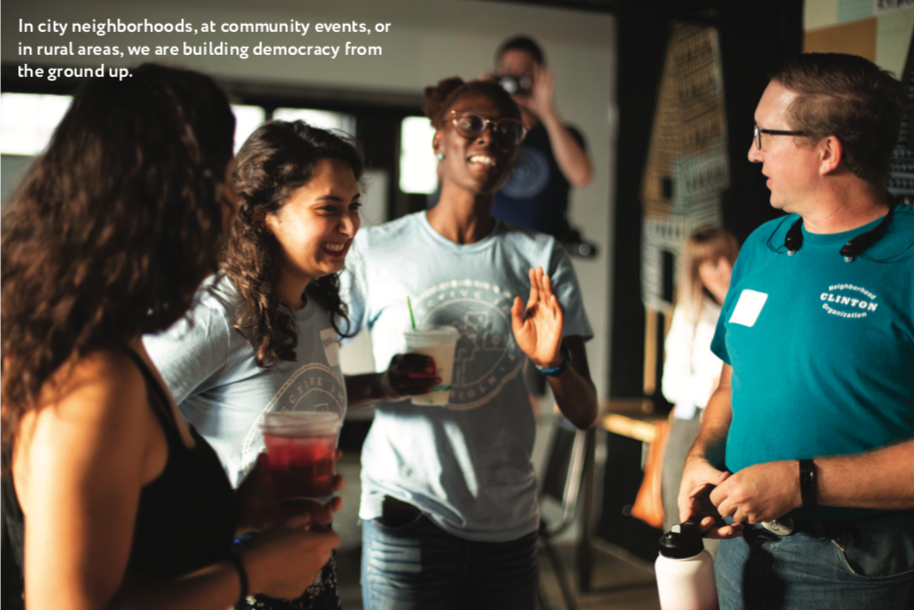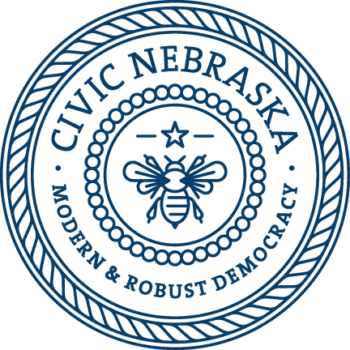Civic health is the will and ability within a community to work together to tackle mutual problems. It’s the degree to which we Nebraskans talk to our neighbors, are active in community groups, vote, talk about politics, and act to further civic interests. And it’s vital to our democracy, which is why our Civic Health Program works constantly to strengthen it – house by house, block by block, community by community.
This year saw an acceleration in our engagement in Greater Nebraska, including the expansion of the Rural Civic Action Program into new towns and cities. We also entered into new partnerships in places like Diller, Potter, and McCook to build rural civic health. Meanwhile, in our larger cities, our ONE Omaha and Collective Impact Lincoln initiatives empowered neighborhood-led positive change, including Lincoln’s new humane housing ordinance in May. Finally, our increasingly popular Government In Action Days – daylong, hands-on experiences with elected state and local leaders – forged dynamic connections between hundreds of Nebraskans and their institutions.
As 2020 dawns, our Civic Health Program continues to give Nebraskans new pathways to express their values, add their voices to the public discourse, be active neighborhood and community stakeholders, and engage meaningfully with their government. Because democratic power is found in shared civic responsibility, and we all rise if we work together.
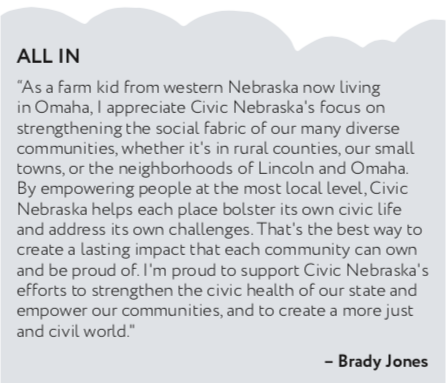
RISING AS ONE
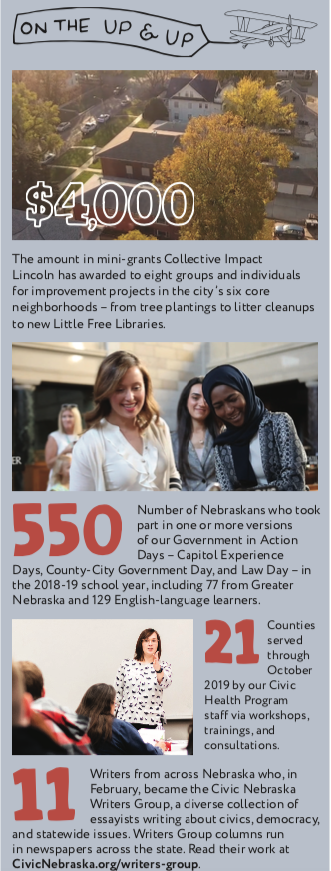
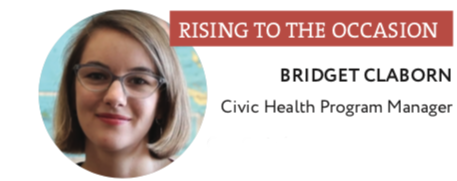
Our Civic Health efforts are expansive. We work with schools, neighborhoods and entire communities across the state. My focus is on building up civic education and engagement in all of these areas. Pretty quickly, we move past the nuts and bolts of how government works, and get into why everyone should participate in our democracy. Then we show people how they can do that.
Our democratic systems are designed to hear all voices and bring everybody to the table. And they work best when they do. But, the reality is our democracy doesn’t always create pathways that really do include everybody.
At Civic Nebraska we create those pathways. Pathways that instill that sense of agency and self-determination so that everybody has a voice – and the desire, the knowledge, and the confidence to use it.
Civic health plays an important role in the landscape of our democracy. It is that sense of “Who are you in your civic life?” And “Can you bring your full self to whatever that means to you?” It’s not just about going to your polling place and casting your ballot. It’s bringing your full self to your community and contributing the skills and talents that you have, together with those around you, to build a sustainable community that works for all.
We have a political climate today with a lack of empathy and people feel they can’t talk to each other. Our work is in bridging that difference between people from all walks of life – from our coffee shops to our neighborhoods, right up to the floor of our Legislature.
I know I make a difference when I see that light bulb go off. When I’m leading a Capitol Experience Day, and the students go from “Do I really want to be here?” to “Whoa, this is awesome. I could see myself in this role.”
We’re not only enriching the learning that’s going on in the classroom. We’re inspiring young civic leaders and encouraging our people to be involved community members. Because we’re all in it together. It’s important work, and we do it well.
ALL RISE: 2019 ANNUAL REPORT

